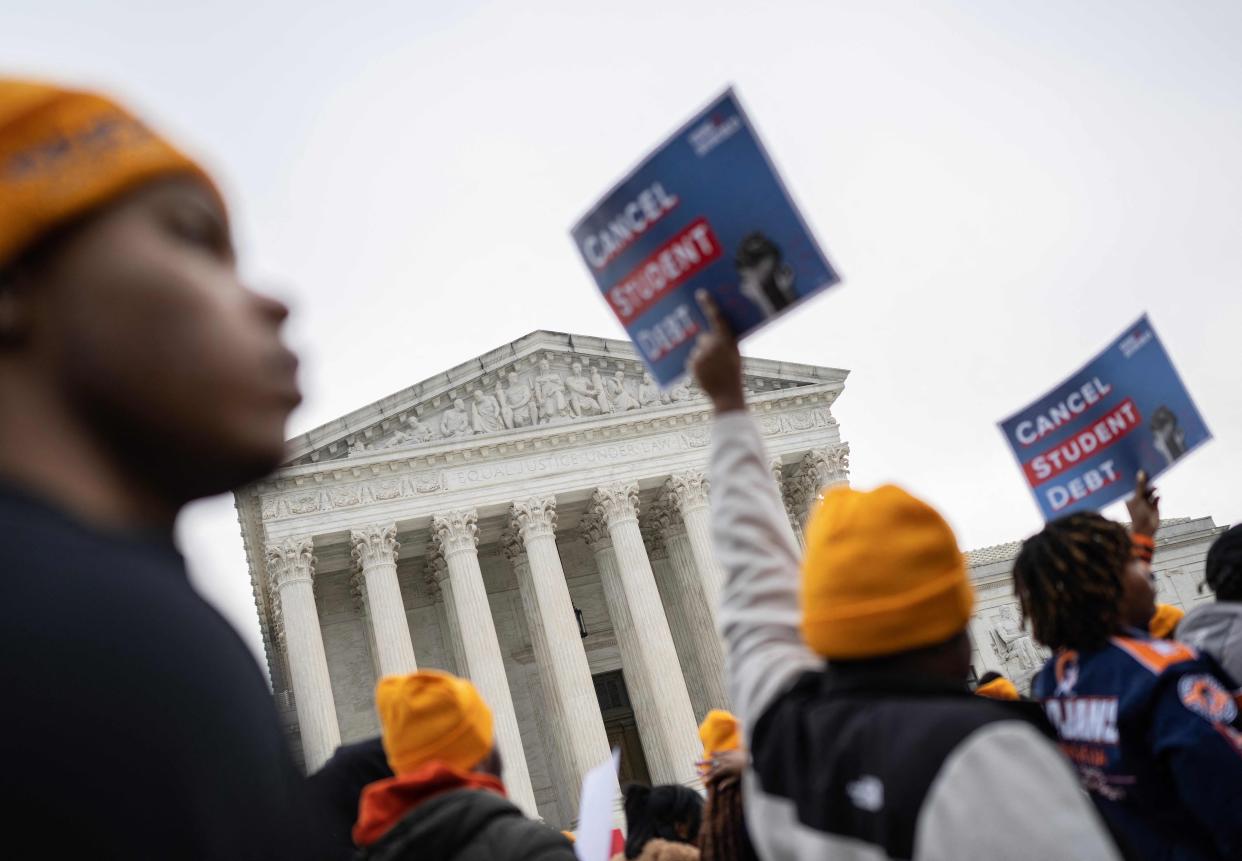These former HBCU students owed their college nearly $10 million. The debt was just erased

On or around Monday, nearly 3,000 former college students were expected to be getting letters with the kind of news millions of Americans probably wish they could receive right now: that their outstanding debts have been cleared.
The 2,777 former students attended Morehouse College, a historically Black liberal arts school for men in Atlanta. And collectively, they owed Morehouse $9,707,827.67 through the fall 2022 term, some of the accounts dating back decades. With the help of the Debt Collective, a union of debtors, and in collaboration with the college, a 501(c)(4) known as the Rolling Jubilee Fund bought that debt out.
This is a tiny sliver of the national student debt pie. And the action, notably, did not apply to any federal student loans, which nationwide now amount to more than $1.6 trillion and for which payments resumed a few weeks ago after a yearslong, pandemic-era hiatus. This was a debt owed directly to the college – whether loans to attend, unpaid tuition, or even parking fees.
Across the country, many former students are held hostage by these kinds of institutional debts. Some colleges refuse to release records for students who owe them money, for example: A 2021 Hechinger Report found that 6.6 million students were blocked from accessing their transcripts. It's debt that, like federal student loans, disproportionately hampers families of color.
"The financial burden prevents them from being able to move on with their lives," said Braxton Brewington, press secretary with the Debt Collective. Without transcripts, students can't advance their education. "It just sort of follows them."
Another form of student debt relief: Occupy Wall Street activists purchase outstanding debt of nearly 500 Black women at HBCU
Black Americans disproportionately burdened with student loans
This is the second time in recent history the Debt Collective has spearheaded the clearance of debts owed to a college by its former students. Last year, it purchased $1.7 million in unpaid student balances at North Carolina's Bennett College, a historically Black women's liberal arts college.
And in 2019, Morehouse made headlines for a different student-loan-forgiveness surprise: Just before receiving their diplomas, that year's graduates learned their student loans would be paid off by billionaire investor Robert F. Smith, the country's richest Black man. (Smith later became embroiled in a tax evasion scandal.)
Black students are less likely to enjoy generational wealth and thus more likely to go into debt for their education. Students who attend historically Black colleges and universities, or HBCUs, borrow at a far greater rate than their peers at other types of schools and are nearly three times as likely to borrow $40,000 or more, according to research by the United Negro College Fund.
The circumstances that force them to borrow are the same ones that make it difficult to pay it off − and that goes for debts owed directly to colleges, like that most recently purchased by the Rolling Jubilee Fund. Many had to drop out to care for a family member or move for work, for example.
“Debt has proven itself to be one of the strongest deterrents in a prospective students’ decision to attend college and inhibitors in alumni’s socioeconomic success post-graduation,” David A. Thomas, president of Morehouse College, said in a statement. “It is why our Morehouse’s $500 million capital campaign aims to position the College as a need-blind institution by 2030. Partners like the Debt Collective and Rolling Jubilee are making the investment to help level the financial playing field for our students and alumni, and we are all tremendously grateful for their vote of confidence through such a generous gift and financial relief.”
After the Hechinger Report's coverage, Education Secretary Miguel Cardona called for a ban on the practice of withholding transcripts for outstanding debts.
Student loan debt forgiveness: Education Department begins talks over new plan
Mass student loan forgiveness? Biden administration faces mounting pressure
This debt purchase hardly makes a dent in the student debt crisis. But Brewington hopes the ease with which the Rolling Jubilee wiped out the Morehouse debt sends a message about the possibility of doing something on a larger scale. If a group of activists can make nearly $10 million in outstanding balances disappear with the snap of its thumbs, why can't the president do something similar?
This past summer, the Supreme Court ruled against President Joe Biden’s original plan for mass forgiveness. The plan would have canceled up to $20,000 in federal student loans for low- and middle-income borrowers.
Since then, the administration has taken a multipronged approach to providing relief through other, more targeted means. It has worked to clean up the public service loan forgiveness and income-driven repayment programs, wiping out the balances of tens of thousands of borrowers. It’s now seeking changes to federal law that could ensure relief for tens of thousands more.
But despite Biden’s campaign promises, the Education Department has recently stopped short of promising something more in the vein of wide-scale cancellation.
The Debt Collective says the onus is on Biden to fulfill those promises.
Contact Alia Wong at (202) 507-2256 or awong@usatoday.com. Follow her on X at @aliaemily.
This article originally appeared on USA TODAY: Morehouse debts cleared: Activists purchase former students' balances

